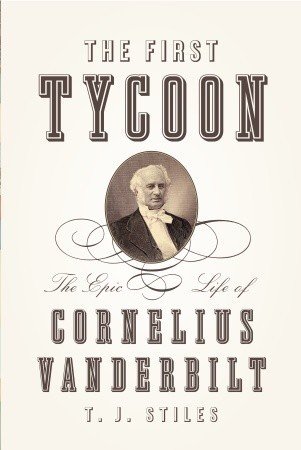This post is a reflection of Burt Folsom's August 3, 2010, talk to Young America's Foundation Conservative Student Conference. Burt Folsom is the author of "Myth of the Robber Barons: Entrepreneurs vs. the State".
Mr. Folsom is very knowledgeable about the past government subsidies regarding in large part transportation. The main points of this talk can be summarized as: entrepreneurs consider subsidies as a safety net and will therefore be less responsible with the money they have, competition and profitability breed innovation and drive improvement, and government-funded projects are not efficient. Folsom gives examples from Vanderbilt's steamships, the Transcontinental Railroad, airplanes, and others.
Competition breeds innovation. Companies that are competing will need to try and be more profitable than their competition. This can occur in several ways. First, the company can try to cut costs, often by being more efficient. Second, the company will try to increase revenues by selling and producing more a product. This is possible by being more efficient in production or selling a better product for a competitive price. Third, the company can try selling a product that nobody else has come up with yet.
There are a few reasons subsidies do not tend to work for these entrepreneurial factors. Typically a government subsidy does not encourage cutting costs and driving efficiency. A subsidy usually does not stem from the profitability of the product, which is usually where there is a need for something. A subsidy does not usually drive to create a product that has not been created yet.
The case of the Great Northern Railroad is a story of efficiency and profitability. The government wanted a transcontinental railroad. Why? To connect the coasts. What good does that do anyone if there is not a purpose for connecting the coasts? The Great Northern Railroad became transcontinental because it continued to add value, there was a reason to connect the coasts that were profitable. The original highways were originally privately funded, and we still see toll roads as a form of this. Other roads are government-funded because of their widespread use and wide need.
My one single issue with this talk is as follows: people with political influence (usually very rich people) get the subsidies (which we have decided do not work). Folsom stated as much. Well, ultra-wealthy people have the capital to overtake small entrepreneurs' ideas and businesses, creating a diminished free market in its own way. I do not see this as a subsidy issue, but rather a merger and integration issue. If Amazon buys small companies to sell their products that are now labeled as Amazon, there is an issue with the competition. Rather than creating their own products, they are just taking a shortcut in the free market.
Overall the examples that Folson described show plenty of reasons why subsidies do not work. I really enjoyed his talk and liked his evidence.
